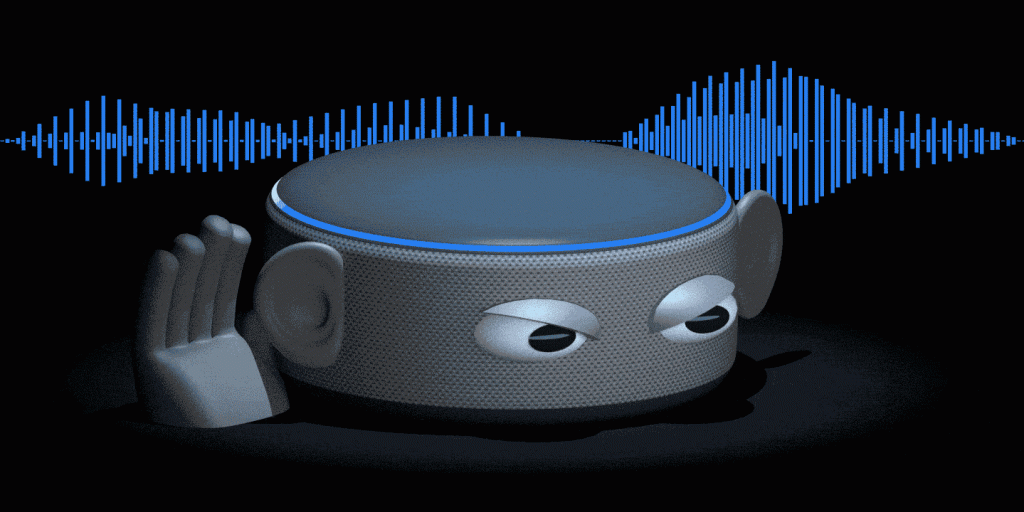
1. Real-Time Translation for Global Audiences
Language barriers are no longer a limitation for event organizers. AI voice technology can now provide real-time translation, making events more accessible to international audiences. Tools like Google Translate and Microsoft Translator use AI to deliver live translations during presentations, ensuring that everyone can follow along, regardless of their native language. This technology is particularly useful for global conferences, virtual events, and multilingual panels.
At the 2024 Consumer Electronics Show (CES), real-time translation technology was used to provide simultaneous interpretations in multiple languages, enhancing the event experience for attendees from around the world. The technology’s ability to maintain context and accuracy in real time is a testament to how far AI has come in understanding and processing human speech.
2. Interactive AI Hosts and Emcees
AI voice technology is also being used to create interactive hosts and emcees for live events. These AI-driven personas can engage with audiences in real time, answer questions, and even provide commentary. For example, IBM’s Watson has been used as an AI co-host at tech conferences, where it analyzed audience responses and provided insights on topics being discussed.
In another innovative use, Soul Machines has developed hyper-realistic AI avatars that can interact with event attendees using voice technology. These digital humans can respond to verbal commands, provide information, and even recognize emotions, creating a more engaging and personalized experience for participants.
3. AI-Powered Voice Assistants for Event Management
AI voice assistants are simplifying event management by automating routine tasks. Organizers can use voice commands to control lighting, audio systems, and even attendee check-ins. Companies like Crestron and Cisco are integrating AI voice technology into their event management platforms, allowing for hands-free control of event logistics.
For instance, an event planner can simply say, “Start presentation in Conference Room A,” and the system will automatically adjust lighting, project the presentation, and start the live stream. This kind of automation reduces the need for manual intervention and ensures that everything runs smoothly.
4. Enhanced Audience Interaction Through AI
Audience interaction is a crucial part of live events. AI voice technology is making it easier for attendees to ask questions, provide feedback, and participate in discussions. Tools like Slido and Mentimeter have started incorporating AI-driven voice features that allow participants to speak their questions instead of typing them.
During a recent Web Summit event, AI voice technology was used to conduct live polls and Q&A sessions. Attendees could speak their questions directly into their phones, and the AI system would transcribe and queue them for the speaker. This real-time capability not only speeds up interactions but also makes the experience more inclusive for those who may not feel comfortable typing.

The Future of AI Voice Technology in Events
The potential for AI voice technology in live events is immense. As the technology becomes more advanced, we can expect even greater levels of interaction and personalization. Future developments will likely focus on improving context understanding, voice synthesis, and emotional intelligence, allowing AI to engage with audiences on a deeper level.
One exciting area of research is emotion-sensing voice AI, which can detect a speaker’s emotional state and adjust responses accordingly. This could be used to create more empathetic and engaging AI hosts or even to help presenters gauge audience reactions in real time. Another emerging trend is voice cloning, which uses AI to replicate a person’s voice accurately. This technology could be used to create virtual appearances by notable figures, making it seem as though they are speaking live at events.
Challenges and Considerations
Despite its benefits, AI voice technology in live events comes with challenges. Accuracy and latency remain key concerns, especially when real-time interaction is involved. If the AI lags or misunderstands the user, it can disrupt the flow of the event. Data privacy is another issue, as voice interactions are often recorded and stored for analysis. Event organizers need to ensure that they comply with data protection regulations and maintain transparency with participants.
Additionally, not all AI voice systems are equally proficient in understanding different accents and dialects. Companies are investing heavily in improving these systems, but it remains a challenge for global events with diverse audiences.
Final Thoughts
AI voice technology is revolutionizing how live events are managed and experienced. From real-time translation to interactive hosts, these innovations are creating more engaging and accessible events. As the technology continues to evolve, we can expect to see even more sophisticated applications that will redefine audience interaction.
If you are looking to integrate AI technology into your next event or want to explore the potential of voice AI for live engagements, contact TLC Creative Technology. With a strong focus on cutting-edge solutions, TLC Creative can help you harness the power of AI to create unforgettable event experiences.


